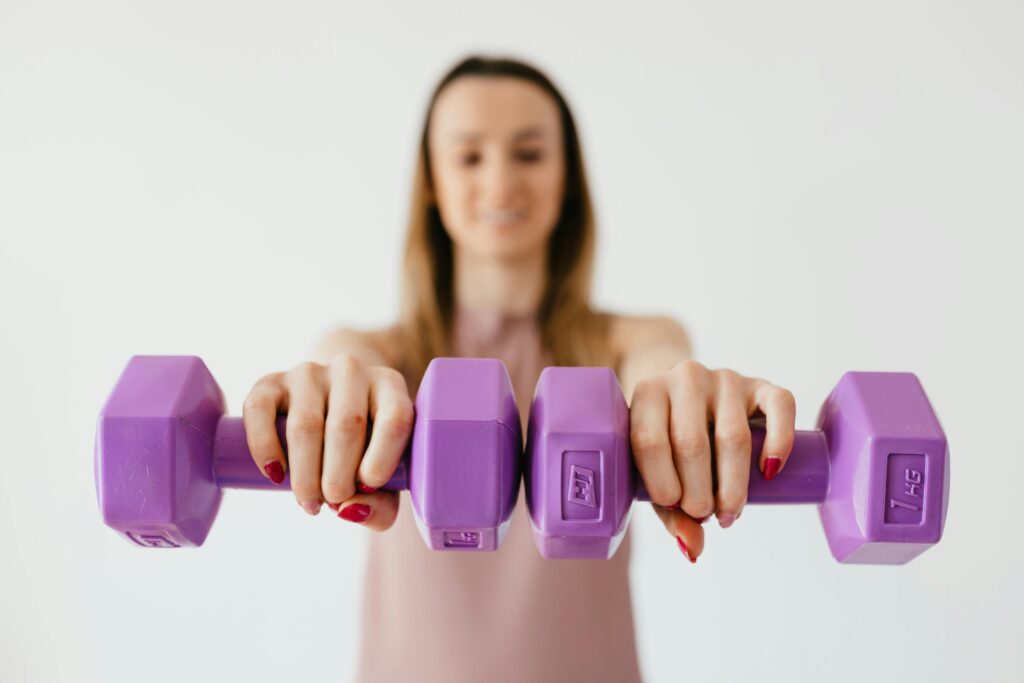Why Weight Training Isn’t Just for Men
Let’s get this started with a truth bomb: weight training isn’t for dudes grunting in the gym. It’s for any woman looking to feel stronger, look leaner, and live longer. Whether you need to tone up, build your confidence, or just move better—weightlifting can totally change your life.
Busting the Myths Surrounding Women and Weights
You’ve likely heard something like “Lifting turns women bulky” or “You should just do cardio.” Spoiler alert: that’s a myth, and it’s held too many women back from achieving their strength. You won’t be the Hulk overnight—promise.
Knowing the Basics
What is Weight Training?
Weight training, also known as resistance training, is applying external resistance (such as dumbbells, barbells, machines, or your own body weight) to make your muscles perform more work. That “resistance” works to build strength, endurance, and muscle tone.
Benefits of Weight Training for Women
Here’s the short list:
- Burns more calories—even when you’re resting
- Boosts metabolism
- Builds lean muscle mass
- Strengthens bones (hello, osteoporosis prevention!)
- Improves posture and balance
- Enhances mental health
And did we mention it feels empowering?

Getting Started Safely
Get Medical Clearance (if necessary)
If you have any health issues, discuss with your physician before you start. Safety is paramount, always.
Begin with Bodyweight Exercises
Learn moves like push-ups, squats, and planks with your own body weight. These are the fundamentals of strength and set the foundation for strength.
Learn Proper Form Before Adding Weight
Seriously—don’t skip this. Bad form can lead to injuries. Watch tutorials, hire a trainer, or film yourself to ensure your form is on point.
Choosing the Right Equipment
Dumbbells, Barbells, Resistance Bands – What’s Right for You?
- Dumbbells are versatile and beginner-friendly.
- Barbells are great for compound lifts like squats and deadlifts.
- Resistance bands are perfect for home workouts and travel.
Home Gym vs Gym Membership
Don’t like gym crowds? No worries. A yoga mat and a set of dumbbells can do the trick. But if you enjoy variety and accountability, perhaps a gym is worth the cost.

Creating Your First Workout Routine
How Frequently Should You Train?
Begin with 2-3 days a week. Your body must acclimate and recover. No beast mode necessary from the very beginning.
Example Weekly Schedule
- Monday: Full-body workout
- Wednesday: Lower body
- Friday: Upper body + core
Warm-Up and Cool Down: Non-Negotiables
Take a quick 5–10-minute warm-up (such as light cardio and dynamic stretches) to prime your muscles. And don’t ever skip the cool-down—stretch it out and let your body recover.
Beginner-Friendly Exercises
Upper Body Workouts
- Dumbbell shoulder press
- Bent-over rows
- Push-ups (start on knees if necessary)
Lower Body Workouts
- Bodyweight squats
- Glute bridges
- Dumbbell lunges
Core Strength Training
- Planks
- Russian twists
- Dead bugs (yes, it’s a real exercise)
Progressing Over Time
The Importance of Progressive Overload
Want to get stronger? You’ve got to challenge your muscles over time—by lifting heavier, doing more reps, or cutting rest time.
Knowing When to Increase Weight
When you can do 12-15 reps without even getting sweaty, it’s time to step it up.
How to Avoid Plateaus
Change your routine every few weeks. Experiment with new exercises, crank up the intensity, or switch up the number of sets and reps.
Fueling Your Body
Nutrition Tips for Female Lifters
Pay attention to:
- Protein: for muscle repair (chicken, tofu, Greek yogurt)
- Carbs: for energy (oats, sweet potatoes, fruit)
- Fats: for hormones and brain health (avocados, nuts)
Pre and Post-Workout Nutrition
- Pre-workout: Eat 1–2 hours before training (carbs + protein)
- Post-workout: Refill your tank with a balanced meal or shake
Avoiding Common Mistakes
Don’t Compare Yourself to Others
Your fitness journey is unique. Focus on your progress, not the influencer on Instagram.
Rest Days Are Essential
Muscles grow when you rest. So don’t feel the guilt and enjoy your off days.
Don’t Neglect Flexibility and Mobility
Stiff muscles = terrible performance and increased injury risk. Stretch often and experiment with mobility drills.
Monitoring Your Progress
Journaling and Progress Photos
Monitor your lifts, reps, how you felt, and progress pics. You will be surprised at how far you’ve come.
Celebrate Small Wins
Did a full push-up for the first time? Got your form on point? Celebrate it. Every victory counts.

Staying Motivated
Setting Realistic Goals
Don’t try to deadlift two times your weight in two weeks. Set SMART goals: Specific, Measurable, Achievable, Relevant, and Time-bound.
Finding a Workout Buddy or Trainer
Accountability can be the difference-maker. Having someone to root for you or push you can take you to new levels.
Mental Health Benefits
Confidence and Mood Boosts
Strength training makes you feel strong—physically and mentally. And, lifting triggers endorphins that actually get you to feel good.
Stress Relief Through Strength
Life giving you curveballs? Turn that energy into your exercise. It’s like therapy—but sweatier.
Frequently Asked Questions
Do Women Get Bulky from Lifting?
Nope. Women have lower levels of testosterone than men, so you’ll build muscle without the “bulk.” Toned, not Hulk.
Can I Train During My Period?
Yes! Some women actually feel stronger in some stages of their cycle. Listen to your body and adjust accordingly.
Final Tips for Long-Term Success
Consistency Beats Intensity
You don’t have to be hard every time. Just get in there consistently, and you will see results.
Learn to Love the Process
Progress is slow. Appreciate each step and fall in love with how lifting makes you feel, not how it makes you look.
Conclusion
Beginning weight training as a female isn’t all about being hot—it’s about feeling strong, confident, and empowered. It’s about taking back your power and knowing that strength has no gender. Start small, stick with it, and enjoy the ride. You can do it.
FAQs
- How long will I see results with weight training?
Most women will notice improvements in energy and strength after several weeks. Visible physical changes will take 6–12 weeks with dedication. - What is more effective for weight loss—cardio or weights?
Both are beneficial, but weight training increases muscle, which increases your metabolism and aids in burning fat in the long run. - Can I do weight training daily?
You shouldn’t train the same group of muscles daily. Do upper and lower body in rotation or rest. - What if I don’t have a gym?
Don’t worry. Bodyweight exercises, resistance bands, and home dumbbells are just as effective. - Is it safe to do weight lifting during pregnancy?
It is relative to your health and level of experience. Always see your doctor before continuing or beginning a weight training program while pregnant.

